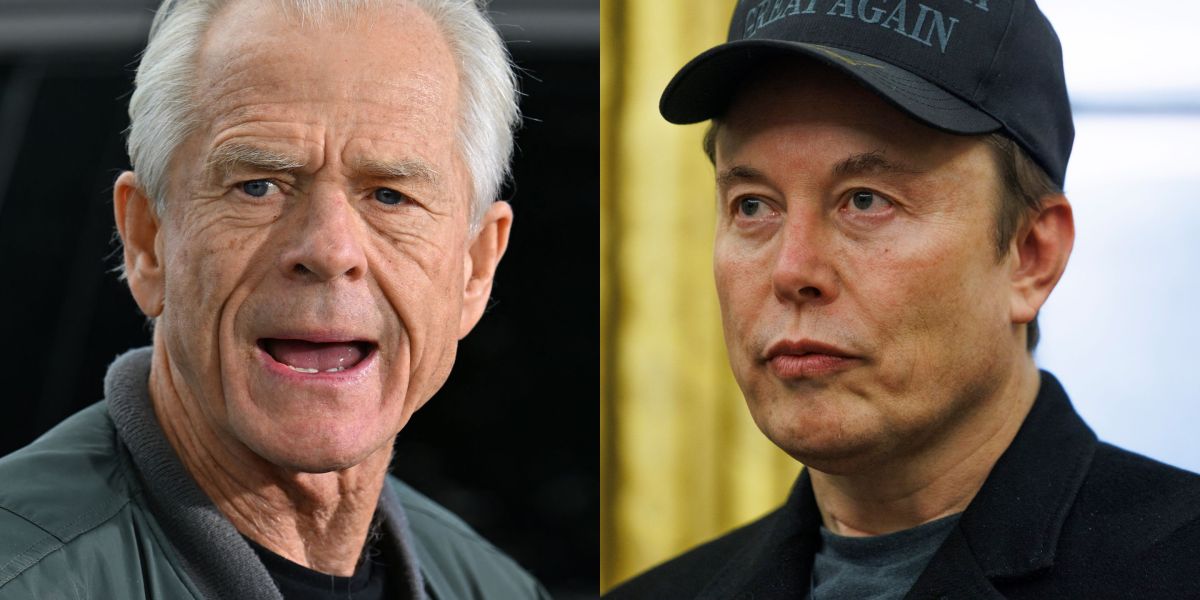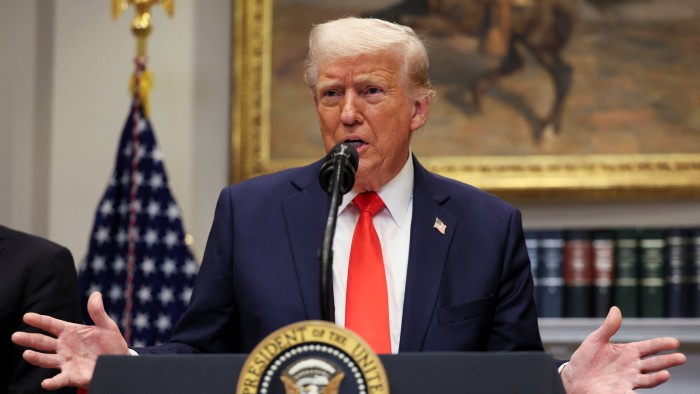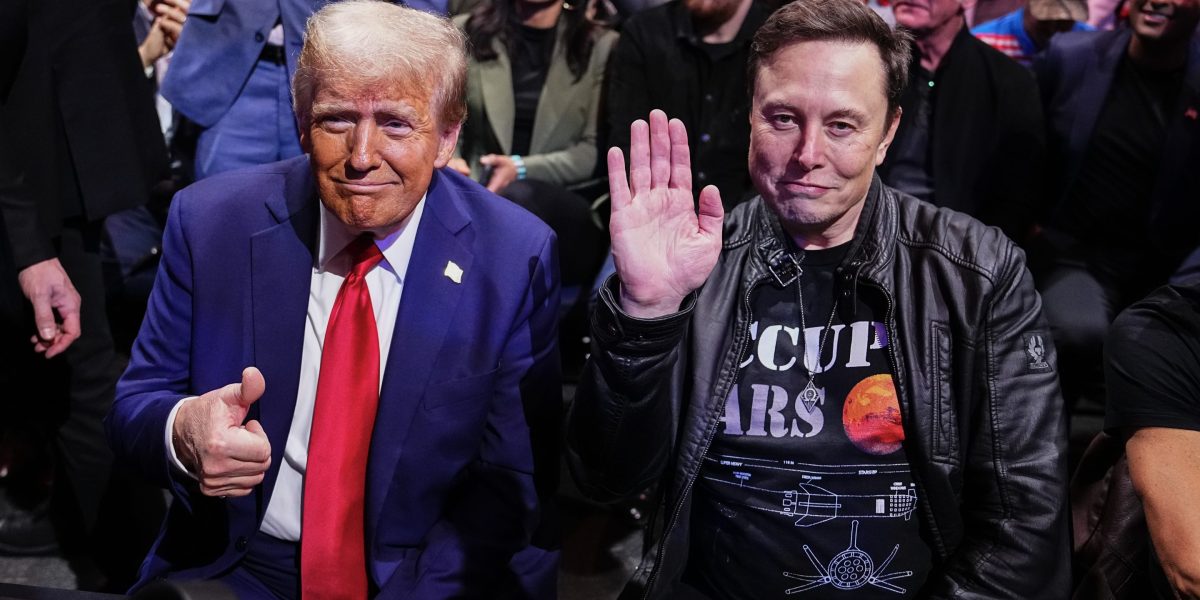
- Elon Musk publicly clashed with Trump trade advisor Peter Navarro over the administration’s aggressive tariff policy, calling him “dumber than a sack of bricks” and backing his criticism with data showing Tesla’s American manufacturing credentials. The White House downplayed the dispute, framing it as a sign of healthy internal debate—even as market analysts warn such infighting fuels economic uncertainty.
It seems President Trump is willing to let two of his top advisors publicly spat over his controversial tariff policy, even if it means adding further chaos to an already volatile market.
In recent days Tesla CEO Elon Musk has been ramping up criticism of Peter Navarro, one of Trump’s top trade advisors particularly on tariff policy.
Musk—who was a major donor to the Trump campaign and has led the Department of Government Efficiency (DOGE) since the inauguration—has made it increasingly clear he disagrees with the aggressive foreign policy announced on April 2.
Over the weekend the SpaceX boss told Italy’s deputy prime minister that he had advised the Oval Office it should pursue freedom of trade and movement of labor between the U.S. and the EU—a far cry from the 20% tariff Trump announced in his Rose Garden address.
Musk’s disagreement with the policy out of the White House has now descended into a public back-and-forth between Navarro and the X owner, laying bare the rifts appearing within Trump’s administration.
Overnight Musk said Navarro was “truly a moron.”
That was in response to Navarro claiming that the American people knew Musk—the richest man on the planet—is not a “car manufacturer” but a “car assembler.”
Musk is also now wielding the ‘fake news’ line against Navarro, a high-profile member of Trump’s team, saying that his claims about Tesla are “demonstrably false.”
Musk backed this up by posting on X a link to a Kelley Blue Book study which shows Tesla produced the most American-made cars, undermining Navarro’s argument that the EV-maker merely assembles its vehicles in the U.S. as opposed to being domestically produced.
Alongside the research he wrote: “Navarro is dumber than a sack of bricks.”
Continuing his criticism, Musk then apologized to bricks for the comparison, saying it was “so unfair to bricks.”
But it seems the White House is not only unconcerned by the spat, it’s indulging it.
Responding to a question from media about whether the back-and-forth is undermining the administration’s message on tariffs, White House press secretary Karoline Leavitt responded: “These are obviously two individuals who have very different views on trade and tariffs.
“Boys will be boys and we will let their public sparring continue.”
Instead Leavitt framed it as Trump’s administration being the “most transparent in history,” adding: “It also speaks to the president’s willingness to hear from all sides. He has people at the highest levels of this government, in this White House, you have very diverse opinions on very diverse issues but the president takes all opinions in mind and then he makes the best decision based on the best interests of the American public.”
Further volatility
In-fighting between some of the most influential figures in Trump’s administration is precisely the opposite of the clear and decisive leadership Wall Street is looking for amid market turmoil.
“Public disagreements between the people around Trump increase uncertainty about trade policy—and also about the prospect for trade deals; disagreements make it unclear what the administration’s objectives are,” noted Paul Donovan, chief economist at UBS.
Donovan also highlighted that the rhetoric around consumers not bearing the burden of the tariff policy has shifted, adding: “The U.S. further increased the tax on de minimis goods from 2 May. This means that U.S. consumers will pay taxes on small parcels. Politically a ‘Temu tax’ visibly tells voters that tariffs raise prices, and domestic consumers pay.”
This story was originally featured on Fortune.com




